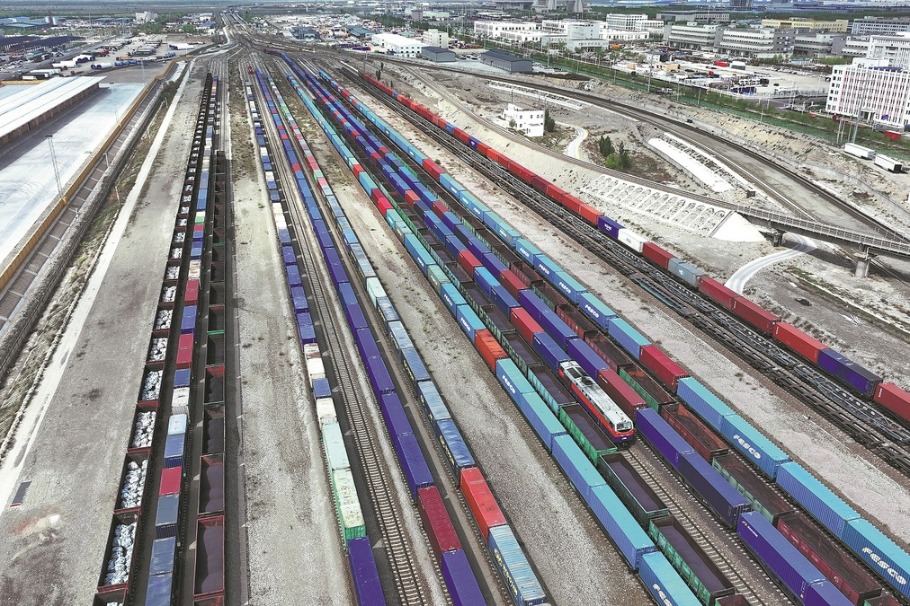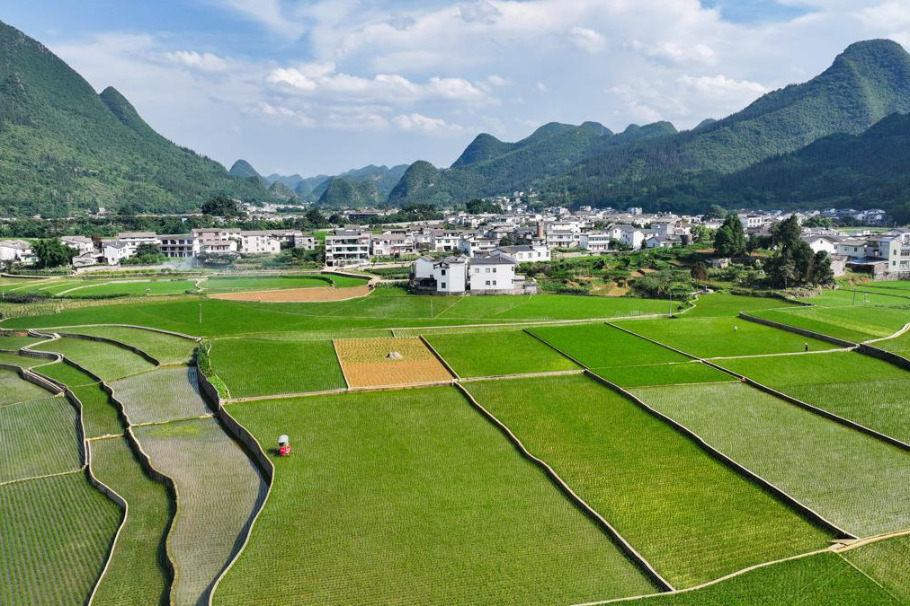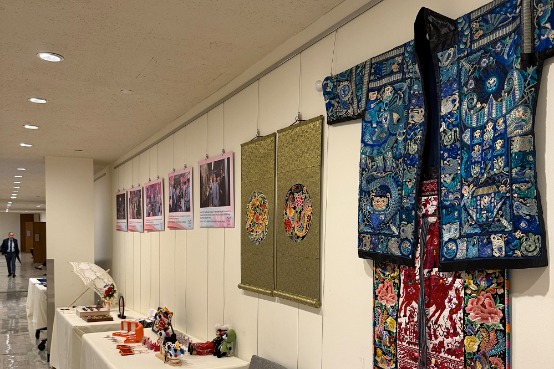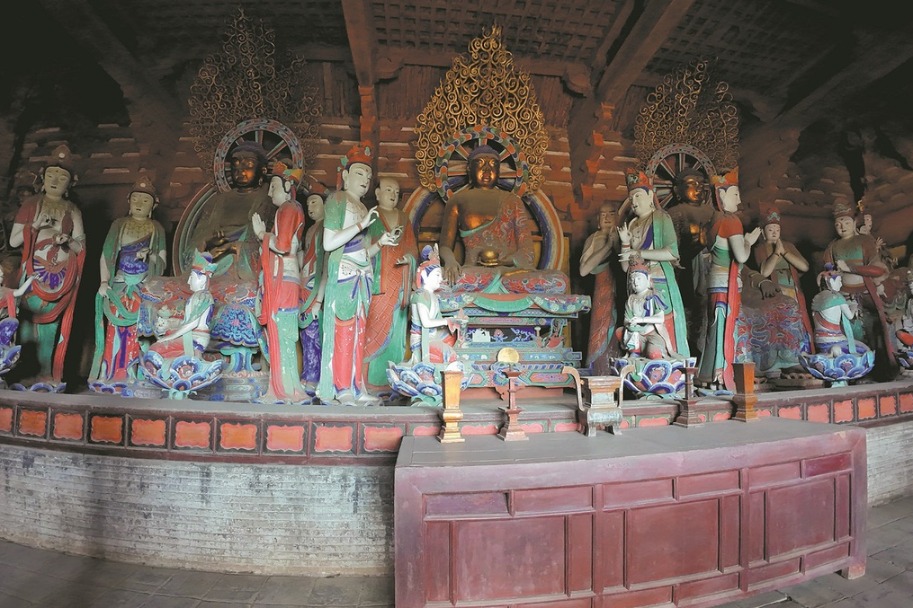Xi Focus: Xi Jinping drives China's relentless fight against desertification

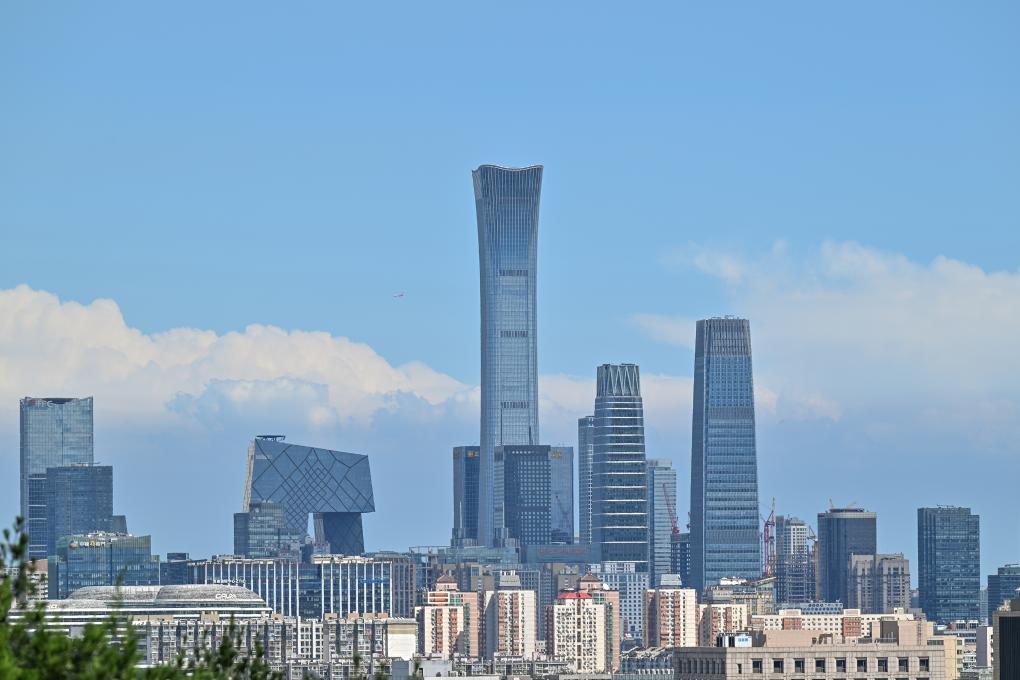
BEIJING -- Beijing's spring sandstorms in Xi Jinping's childhood weren't just natural phenomena to him; they were a persistent nuisance.
"We had to wear thick masks," he once recalled. "If we left the windows open for just a day, the floor would be covered in a layer of gray." That gritty memory stuck, fueling not awe, but a profound drive for change.
Experiences like these forged Xi's commitment to ecological protection, a cause he champions to secure a better world for future generations.
As president of China, general secretary of the Communist Party of China Central Committee and chairman of the Central Military Commission, Xi prioritizes work to combat desertification, visiting critically affected regions across the nation to understand the challenges firsthand.
While decades of efforts have yielded impressive results, China still grapples with vast desertification — about one-sixth of its land area is sandy. The arid north faces a particularly arduous struggle, where ecological disasters often disrupt restoration efforts.
Xi aptly characterizes the fight against desertification as "pushing a boulder toward the mountain top," an endeavor that demands unceasing effort. "If you pause for even a moment, the boulder rolls back down," he warned during a 2023 inspection tour in North China's Inner Mongolia autonomous region.
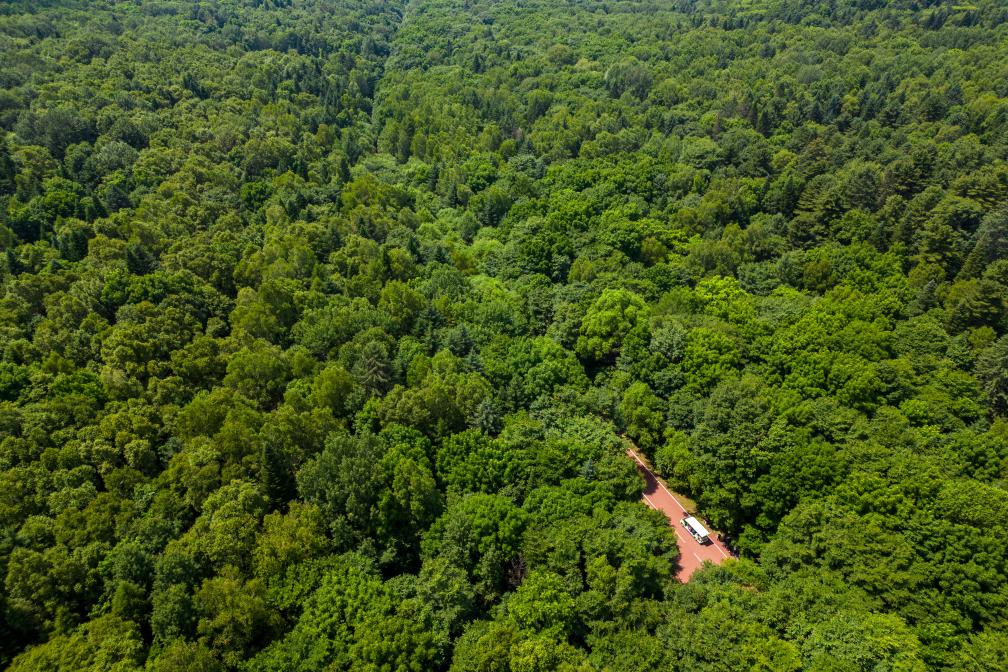
A HOLISTIC APPROACH
In 2013, Xi established the core principle of treating mountains, rivers, forests, farmland and lakes as one interconnected "community of life," requiring holistic protection. It was later expanded to include grasslands and deserts.
The philosophy drove the 2018 creation of the National Forestry and Grassland Administration (NFGA), consolidating efforts to conserve ecosystems and combat desertification nationwide.
This represented "an upgrade in the country's ecological governance," said Wang Jun, an official with the Bureau of Three-North Shelterbelt Forest Program (TSFP) under the NFGA.
China launched TSFP in 1978 with an ambition to tackle desertification in northwestern, northern and northeastern parts of the country in about 70 years. The world's largest afforestation program is still underway.
A critical bottleneck for the massive TSFP "Green Great Wall" project was fragmented regional action. "Sand dunes don't stop at borders," stressed Sun Guo, a forestry official in Northwest China's Ningxia Hui autonomous region, highlighting gaps between administrative lines. In October 2023, Xi's leadership spurred five regions, including Ningxia and Inner Mongolia, to sign a joint agreement, enabling coordinated action across borders.
China is also fortifying its legal defenses. April saw the draft of the country's first comprehensive environmental code enter the legislative process.
"It elevates rivers, lakes, and deserts as key ecological elements, signaling protection on equal footing with other ecosystems," noted Wang Jin, a law professor at Peking University.
Xi consistently lauds the grit of those battling the elements on the TSFP frontline. During a 2023 inspection tour, he urged workers to "work with courage, determination and perseverance to create new miracles." From Gansu's Babusha to Inner Mongolia's Xinhua, Xi expresses heartfelt gratitude to these frontline workers during his multiple visits to forest farms.
This historic, comprehensive drive is yielding visible change.
Cleaner air: Over the last decade, severe dust storms plummeted. In Beijing alone, the good/excellent air days hit 290 in 2024, a surge of 114 days when compared with that of 2013.
Less sand: The net area of sandy land shrank by 65 million mu (about 4.33 million hectares), roughly equivalent to the size of Switzerland, over 13 years. China is the first nation to achieve "zero growth" in land degradation.
Core belief: As Xi puts it, "A sound eco-environment is the fairest public good and the most inclusive benefit to people's wellbeing."
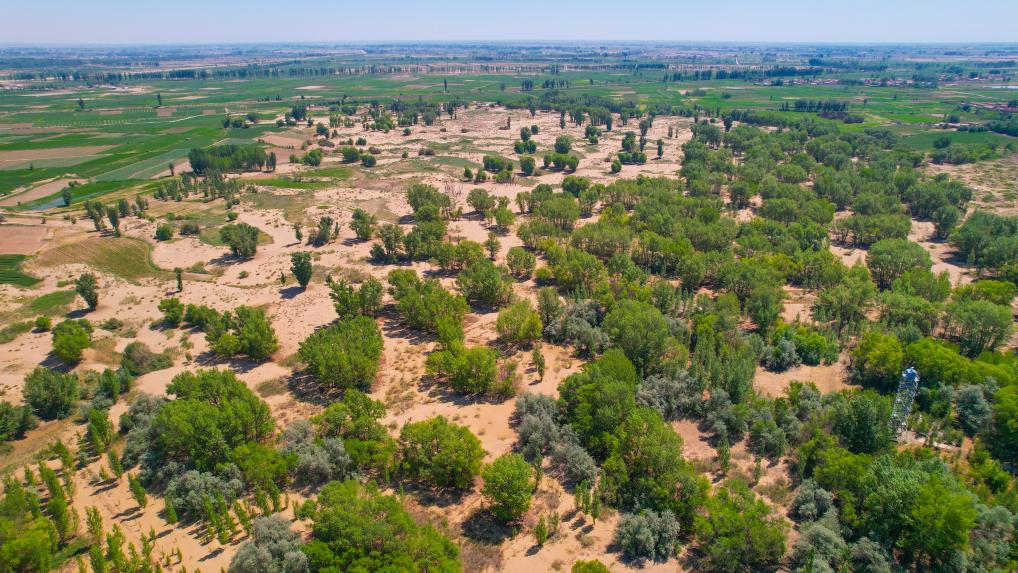
BEYOND SAND: A BETTER LIFE
Xi's concern extends deeply to livelihoods in desert-affected areas.
After trying desert stabilization techniques at Babusha farm in 2019, he reminded foresters: "Fighting desertification is all about 'creating a better life'," urging them to also focus on improving daily wellbeing.
This conviction stems from Xi's youth working on the Loess Plateau in Liangjiahe village — itself a TSFP frontline scarred by overexploitation. Mobilizing villagers to build dams taught him that "humans and nature exist in symbiosis" ... "Harming nature is shooting ourselves in the foot." Today, this human-nature harmony is fundamental to his vision for Chinese modernization.
The theme of this year's World Day to Combat Desertification and Drought on June 17 — Restore the Land, Unlock the Opportunities — echoes Xi's enduring concept: Lucid waters and lush mountains are invaluable assets. This philosophy has reshaped public awareness.
"We are no longer fighting sand just for the sake of it — we understand 'why' it matters now," explained Wang Youde, 71, a "People's Role Model" for his decades of dedication to desertification control in Ningxia.
Now, regions unlock economic potential: desert tourism in Ningxia's Shapotou is booming, while others cultivate goji berries, make wine and develop solar power on reclaimed land.
Ibrahim Thiaw, executive secretary of the United Nations Convention to Combat Desertification, lauds China's "socially profitable" model as "a good example" for degraded lands globally.
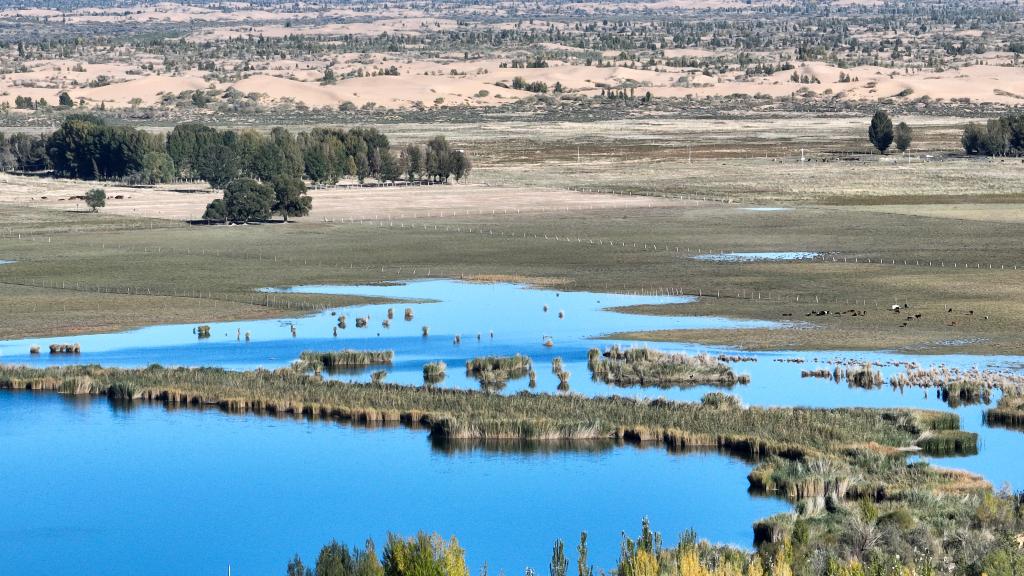
A CHAMPION OF GLOBAL COOPERATION
With desertification consuming land equivalent to four football fields every second globally, this is a fight for humanity's shared future. China, a major contributor to global greening and model in desert control, actively promotes cooperation, guided by Xi's vision of "a global community of shared future."
"The international community should work together to strengthen cooperation on desertification control and advance global environmental governance," Xi urged in a congratulatory letter to the 7th Kubuqi International Desert Forum held in Inner Mongolia in 2019.
China's actions match these words — In Egypt, hundreds of Chinese-drilled wells now turn sandy areas into farmland, supporting desert reclamation. China has supplied drought-resistant saplings to Mongolia's "Billion Trees" campaign. Africa's own "Great Green Wall" plan inspired by the TSFP also gained support from China.
As World Bank official Valerie Hickey said, China offers a "beacon of hope" and a "roadmap" for success against desertification.
Xi affirms: "China will take a more active role in global desertification control, support sand prevention and control efforts in Belt and Road Initiative partner countries, and promote policy dialogue and information sharing among nations."
- Separatist acts can't stop civil exchanges
- New key flight route further bolsters Sino-Kazakh ties
- Central Asia becomes big draw for tourists from China
- Visa-free policy leads to rise in cross-border travel
- Trade thrives at Horgos land port
- Xi's upcoming visit to advance China-Central Asia community with shared future
















